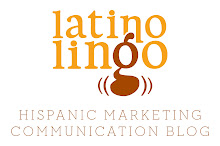The news a few weeks ago that Registro, a Spanish-language weekly based in New Haven, Conn., ceased publication was unfortunate -- certainly in that I personally know those who lost their jobs. While unfortunate, it also certainly wasn't surprising news. Its parent company, Journal Register, had declared bankruptcy, and there was a noticeable decrease in advertising over the last few years.
When the only 2 Spanish-language newspapers in the state that have ceased to exist in recent years are those owned by English-language newspapers, we need to look a little deeper at what has actually happened. Certainly because the closure of the newspaper
bucks the national trend that is seeing an increase in Spanish-language print publications.
The other, Tiempo, a Spanish-language weekly owned by the Meriden Record Journal, closed in 2006. Registro, like Tiempo, was essentially doomed from the start, primarily because its sales staff was the same sales staff as its English-language counterpart. The sales staff at Registro did not know how to sell the newspaper. Period. To general market companies, it was often pitched as a "value added" bonus to an English-language media buy thereby de-credentializing it and minimizing the significance of the newspaper's ability to reach an important customer segment.
Additionally, the parent company didn't adequately invest in developing ties to the community or with its readership. Many a festival, parade, community event, church gathering, festivity, etc. passed by without active participation from Registro. In fact, I tried to include them in a 2-day festival in New Haven that attracts more than 50,000 people that I help to promote with a small non-profit. However, the then-publisher was only interested in participating if the non-profit purchased a series of ads to promote the festival. While I understand the need to make a quick buck, this short-sightedness of the publisher demonstrated the fundamental lack of understanding of why it's important to establish connections, not just transactions, with the Hispanic community.
I presume this lack of connection is what lead some Hispanic advertisers to not want to buy from Registro as they called them a "gringo" newspaper. Some Hispanic business owners and non-profits even went as far as refusing to give interviews for news stories as they didn't trust the newspaper. Clearly, there was a problem with connecting to the very people it intended to inform.
The lesson here is not that the Hispanic market is not economically viable; evidenced by the fact, new media outlets -- including a new Spanish-language weekly and an AM radio station -- have emerged in Connecticut, and its direct competitor has more ads than ever. The lesson, as it is for all general market organizations looking for success in the Hispanic market, is that you have to reach the market in a culturally-relevant manner to have long-term success. It's not enough to build something and hope that we will come.

